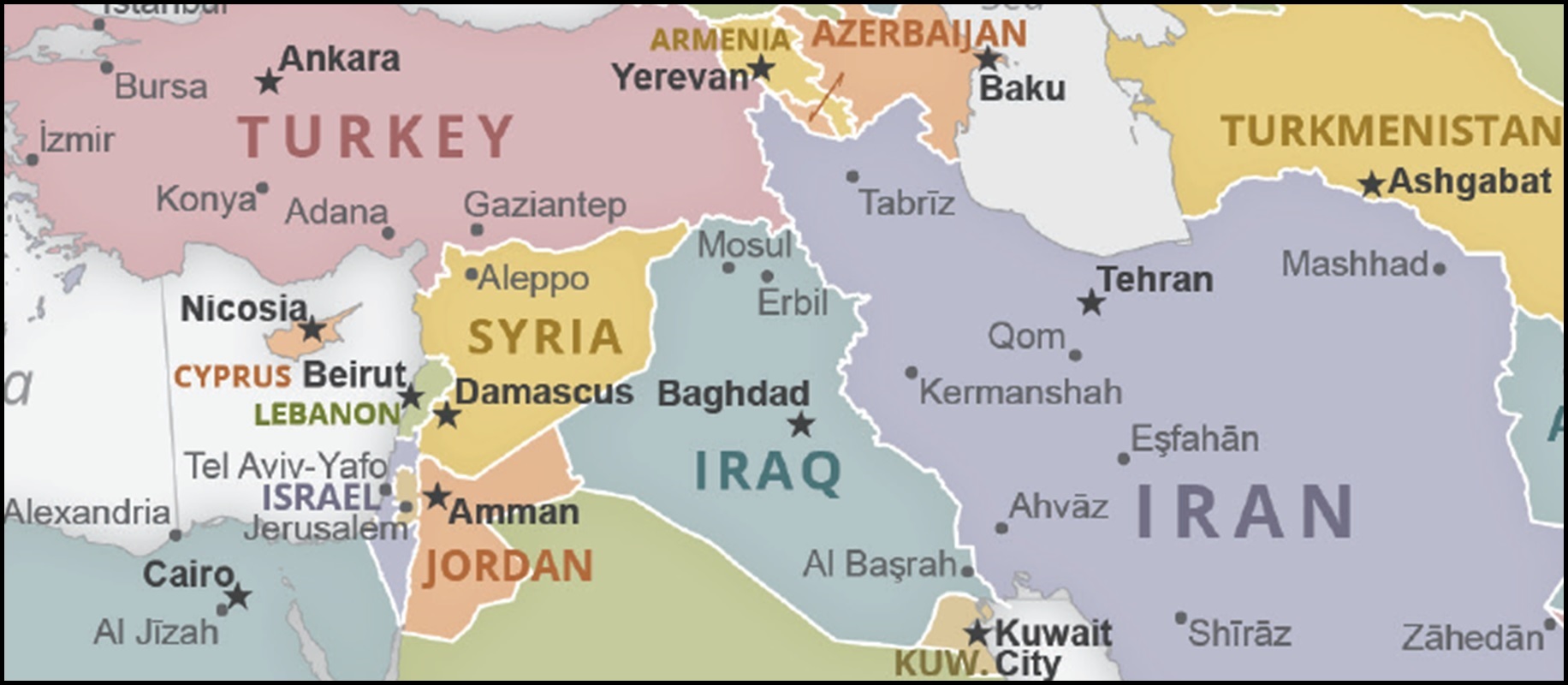After Turkey’s invasion of Syria on October 9, Iran called on its longstanding ally and neighbor to rethink its plan to create a buffer zone inside Syria. “We are calling on our friendly and brotherly neighbor Turkey to act with more patience and restraint, and to revise its decision and chosen path,” Rouhani said in an interview with the Islamic Student News Agency. “We have openly said that the only solution to ensure safety and security in southern Turkey and northern Syria is the presence of the Syrian army.”
Rouhani’s statement was a notable split with Turkey. Along with Russia, Iran has propped up the regime of President Bashar al Assad – militarily, economically and politically—since it disintegrated into civil war in 2011. Since 2017, Iran, Turkey and Russia have jointly led diplomatic talks to craft a post-war government in Syria. Iran has long insisted on the territorial integrity of Syria. Turkey’s invasion is intended to clear out a Kurdish-led militia and create a buffer zone along the 570-mile border with Syria.

In an address to Parliament on October 9, Iranian Foreign Minister Mohammed Javad Zarif insisted that security in Turkey “cannot be created through (military) action against Syria’s territorial integrity and sovereignty.”
“The Islamic Republic certainly believes that regional security is possible through observing two principles: first, respect for the sovereignty and territorial integrity and security of all regional countries, and second, respect for the rights of all its inhabitants, including our Kurdish brothers and sisters.”
Zarif had earlier tweeted….
US is an irrelevant occupier in Syria—futile to seek its permission or rely on it for security.
— Javad Zarif (@JZarif) October 7, 2019
Achieving peace & fighting terror in Syria will only succeed thru respect for its territorial integrity & its people.
Adana provides framework for Turkey & Syria—Iran ready to help.
Iranian parliamentary speaker Ali Larijani canceled a planned trip to Turkey after the incursion began. Nearly 100 Iranian lawmakers signed a statement that condemns Turkey’s military operation in Syria.
On October 10, Iran’s foreign ministry called for an “immediate end to the attacks and for the withdrawal of Turkish forces from Syrian soil.” The Ministry added that while it “understands Turkey’s security concerns” it believed “that the military action would not only not diminish that country’s security concerns, but also cause financial and humanitarian damages.”
In a tweet, Zarif called on Turkey to stop its operations in Syria.
The imperative now is to end the incursion into #Syria & address all concerns through #ADANA.
— Javad Zarif (@JZarif) October 15, 2019
Meanwhile, it is essential that the core principles of JUS IN BELLO are fully observed: distinction between civilians and combatant, & prohibition on inflicting unnecessary suffering.
On October 21, Iranian Foreign Ministry spokesman Abbas Mousavi called on Ankara to respect Syria's territorial sovereignty by not establishing military bases in the country. "The Turks can have bases on their own side of the border but establishing bases on Syrian soil is unacceptable and amounts to violating [the sovereignty] of a member of the United Nations," he said.
Iran has a long history of cooperation with Syria. Damascus has been Tehran’s closest ally since the 1979 Islamic Revolution. Syria was the only Arab country to support Iran against Iraq after President Saddam Hussein’s invasion in 1980.
Iran’s alliance with Syria is part of its strategy to increase influence in the Levant. Syria is also an important territorial piece in Iran’s attempt to establish a land corridor from Tehran, through Baghdad and Damascus to Beirut on the Mediterranean. A land bridge would connect Iran to its Hezbollah allies in Lebanon.
Iran first deployed troops in Syria in 2013. Estimates of Iranian troops in Syria have ranged from a few hundred to a few thousand. But Tehran also mobilized up to 20,000 fighters from Afghanistan, Iraq, Lebanon, Pakistan, and elsewhere to prop up the Assad regime. In April 2018, Iranian forces and their proxies had a military presence in nearly 40 facilities across Syria. As of October, 2019, Iran had spent an estimated $15 billion to support the Syrian regime.
